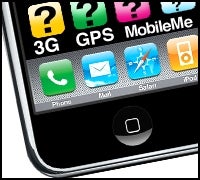 |
SAN FRANCISCO — Is Apple the next Google? When it comes to mobile innovation, at least one developer sees parallels. “Apple has shown, as Google (NASDAQ: GOOG) did before, that it can reinvent an entire market,” said Raven Zachary, a consultant to iPhone developers and founder of a developer conference called iPhoneDevCamp.
Zachary was joined by a panel of iPhone application developers and publishers here at the start of the Web 2.0 Summit Wednesday. Recalling his days at once high-flying Internet portal Excite, Zachary recalled how Google “out innovated” more established Web players to become an Internet giant.
Then there is the innovation of Apple’s App Store, which has attracted over 200 million downloads of mostly free software since its launch earlier this year. There are no over 6,000 applications in the App Store, about a third of which are games.
iPhone developer Bill Dundy of Gala Factory Software made a surprising connection between developing for the iPhone and the NeXT computer, an innovative workstation created by a company formed by Steve Jobs after he left Apple in the late 1980s.
“The NeXT computer was the coolest and most fun to develop for because I felt very productive,” said Dundy. “Back then, NeXT was a niche opportunity. Today it feels the same way with the iPhone, but it’s so much huger. Everyone talks about the iPhone and it’s the thing kids want for Christmas.”
Enterprise apps a disappointment
Most of the panelists were uniformly enthusiastic about the iPhone, and even dismissed complaints that Apple has been unfair in rejecting some applications for App Store distribution.
One mildly negative note was sounded by Matt Murphy, who heads the $100 million “iFund” for new iPhone software. Murphy noted the dearth of new enterprise applications, despite Apple’s efforts to embrace Microsoft’s Exchange and work with enterprise customers. “An area we haven’t seen as much activity as we expected is in the enterprise,” said Murphy. “I expect that’s because these kind of applications take longer to build.” Murphy also noted estimates that about 40 percent of enterprise companies have started some sort of trial engagement or testing of iPhones.
The panel also acknowledged the iPhone has given competitors a kick in the pants, spurring them to add features like touch screen interfaces and online application store fronts. Tom Conrad, Chief Technology Officer for the Pandora Internet radio service, noted his company has developed for several different mobile platforms and nothing matches the iPhone.
“Apple has a pretty substantial head start, not only in the fit and finish of the device, but also with its developer tools …. They have a profound lead in the developer experience,” said Conrad.
He said Apple seems to also benefit from its control of the device as the designer of the both the hardware and the operating system. “Devices like RIM BlackBerry, Palm and Danger, that are also integrated hardware and software, are where you see the really passionate users,” he said. “On Windows Mobile devices, users aren’t as passionate. We’ll have to see how that plays out for Android.”
Keys to success
Murphy ticked off some tips for iPhone developer success. These included keeping applications simple so users see the utility right away. “We’ve seen some companies overcomplicate things and while they may get a lot of downloads, there’s a big drop off in actual use,” he said.
The application should have a “natural business model.” Murphy said it’s a mistake to try and follow old Web models that launch without a real revenue plan. He also emphasized developers should gain a deep understanding of what the iPhone is capable of. “Understand everything you can do with the platform so you can take advantage of it,” he said.


